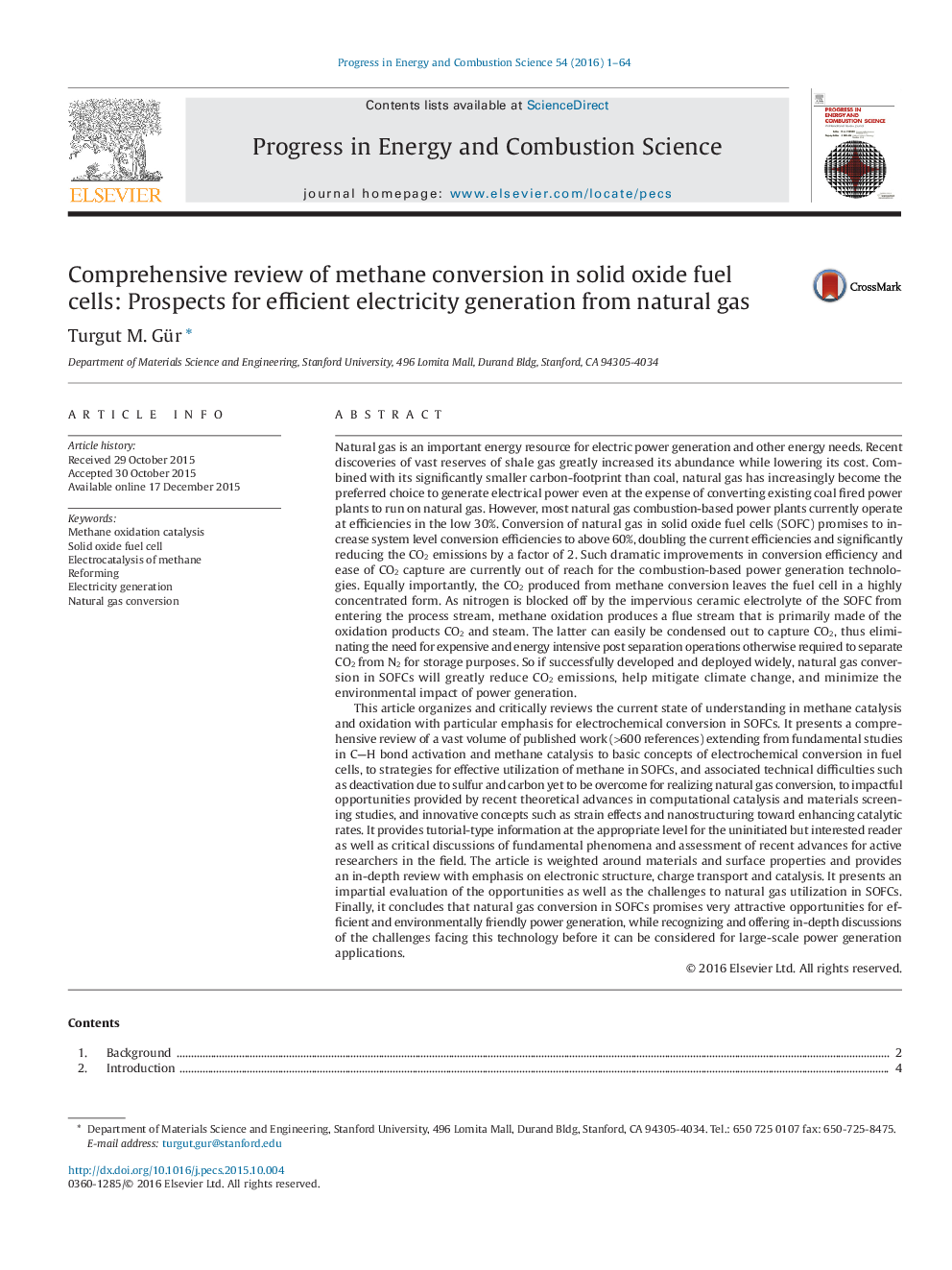| کد مقاله | کد نشریه | سال انتشار | مقاله انگلیسی | نسخه تمام متن |
|---|---|---|---|---|
| 241615 | 466290 | 2016 | 64 صفحه PDF | دانلود رایگان |
Natural gas is an important energy resource for electric power generation and other energy needs. Recent discoveries of vast reserves of shale gas greatly increased its abundance while lowering its cost. Combined with its significantly smaller carbon-footprint than coal, natural gas has increasingly become the preferred choice to generate electrical power even at the expense of converting existing coal fired power plants to run on natural gas. However, most natural gas combustion-based power plants currently operate at efficiencies in the low 30%. Conversion of natural gas in solid oxide fuel cells (SOFC) promises to increase system level conversion efficiencies to above 60%, doubling the current efficiencies and significantly reducing the CO2 emissions by a factor of 2. Such dramatic improvements in conversion efficiency and ease of CO2 capture are currently out of reach for the combustion-based power generation technologies. Equally importantly, the CO2 produced from methane conversion leaves the fuel cell in a highly concentrated form. As nitrogen is blocked off by the impervious ceramic electrolyte of the SOFC from entering the process stream, methane oxidation produces a flue stream that is primarily made of the oxidation products CO2 and steam. The latter can easily be condensed out to capture CO2, thus eliminating the need for expensive and energy intensive post separation operations otherwise required to separate CO2 from N2 for storage purposes. So if successfully developed and deployed widely, natural gas conversion in SOFCs will greatly reduce CO2 emissions, help mitigate climate change, and minimize the environmental impact of power generation.This article organizes and critically reviews the current state of understanding in methane catalysis and oxidation with particular emphasis for electrochemical conversion in SOFCs. It presents a comprehensive review of a vast volume of published work (>600 references) extending from fundamental studies in CH bond activation and methane catalysis to basic concepts of electrochemical conversion in fuel cells, to strategies for effective utilization of methane in SOFCs, and associated technical difficulties such as deactivation due to sulfur and carbon yet to be overcome for realizing natural gas conversion, to impactful opportunities provided by recent theoretical advances in computational catalysis and materials screening studies, and innovative concepts such as strain effects and nanostructuring toward enhancing catalytic rates. It provides tutorial-type information at the appropriate level for the uninitiated but interested reader as well as critical discussions of fundamental phenomena and assessment of recent advances for active researchers in the field. The article is weighted around materials and surface properties and provides an in-depth review with emphasis on electronic structure, charge transport and catalysis. It presents an impartial evaluation of the opportunities as well as the challenges to natural gas utilization in SOFCs. Finally, it concludes that natural gas conversion in SOFCs promises very attractive opportunities for efficient and environmentally friendly power generation, while recognizing and offering in-depth discussions of the challenges facing this technology before it can be considered for large-scale power generation applications.
Journal: Progress in Energy and Combustion Science - Volume 54, May 2016, Pages 1–64
